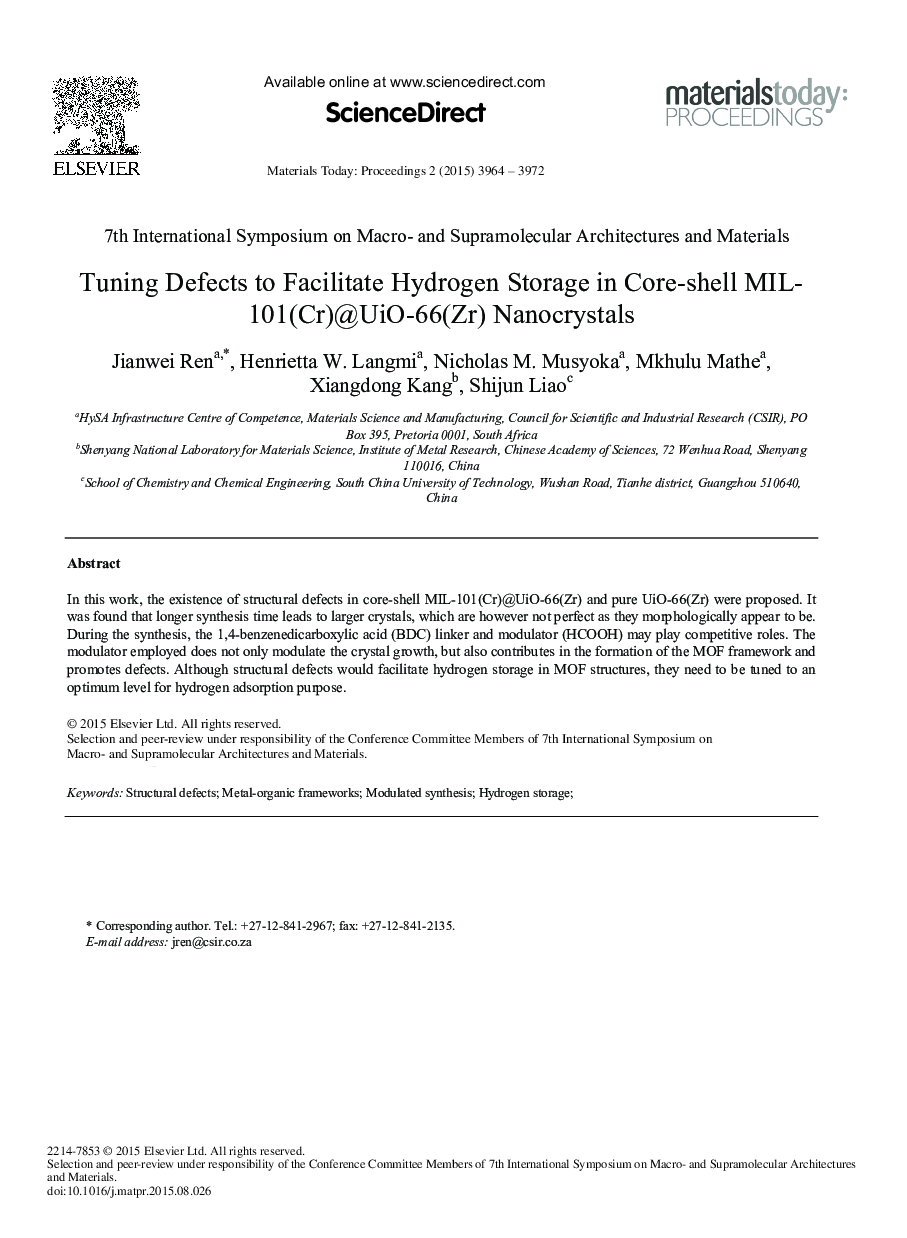| Article ID | Journal | Published Year | Pages | File Type |
|---|---|---|---|---|
| 1631153 | Materials Today: Proceedings | 2015 | 9 Pages |
Abstract
In this work, the existence of structural defects in core-shell MIL-101(Cr)@UiO-66(Zr) and pure UiO-66(Zr) wereproposed. It was found that longer synthesis time leads to larger crystals, which are however not perfect as they morphologically appear to be. During the synthesis, the 1,4-benzenedicarboxylic acid (BDC) linker and modulator (HCOOH) may play competitive roles. The modulator employed does not only modulate the crystal growth, but also contributes in the formation of the MOF framework and promotes defects. Although structural defects would facilitate hydrogen storage in MOF structures, they need to be tuned to an optimum level for hydrogen adsorption purpose.
Related Topics
Physical Sciences and Engineering
Materials Science
Metals and Alloys
